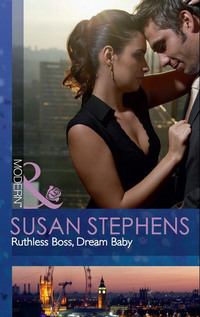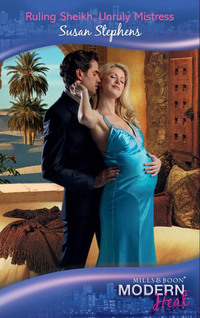
Полная версия
Seduced by the Rebel
‘Come on, come on,’ he urged impatiently. ‘I have to get back to London—’
‘We all have things to do, Heath.’
The rain had stopped and Heath was pacing. He had always suffered energy overload and that force was pinging off him now. She wouldn’t be taking so long if he didn’t look so good. Fantasies she could handle, but this much reality was a problem. Heath’s hair had always been thick and strong, but he’d grown it longer and it caressed his strong, tanned neck, curling over the collar of his shirt, and was every bit as wayward as she remembered. Waves caught on his sharply etched cheeks where his black stubble had won the razor war, and, though he might not have fought with his fists for many years, Heath was still built, still tanned, and, apart from the car, he didn’t flash his wealth, which she liked. His clothes were designed for practicality rather than to impress—banged-up jeans worn thin and pale over the place where a nice girl shouldn’t look, and boots comfortably worn in. Heath had sexy feet, she remembered from those times years back when she had spied on him swimming in the lake—
‘Have you turned into a pillar of salt? Or is there a chance we might get out of here today, Bronte?’
‘Are you still there?’ she retorted, lavishing what Heath used to call her paint-stripping stare on him. The old banter starting up between them had stirred her fighting spirit—
Until Heath reminded her why she was here.
‘Are you serious about trying out for the job of estate manager?’
‘Of course I am.’ She shot to her feet, realising how slender a thread her hopes were pinned on. ‘And if you decide not to keep the property I hope you’ll put in a good word for me with the new owner.’
‘Why would I do that when I don’t even know what you can do? Okay, I admit I’m intrigued by what you told me about your training and your travels. But what makes you think you’re the right person for this job?’
‘I know I am,’ she said stubbornly. ‘All I’m asking for is a fair hearing.’
‘And if I give you one?’
‘You can make up your mind then. Maybe give me a trial?’ She knew she was pushing it, but what the hell?
Heath said nothing for a moment, and then his lips tugged in a faint, mocking smile. ‘If I keep the estate I’ll bear your offer in mind.’
It was enough—it was something. Heath never made an impulsive decision, Bronte remembered—that was her department.
‘Go home now, Bronte. You’ve still got your parents’ cottage to go to, I take it?’
‘They wouldn’t sell that.’ There was an edge of defiance in her voice. ‘Thank goodness they owned it—I heard you bought out all the tenancies.’
‘Another of those rumours?’ Heath’s eyes turned black. ‘It didn’t occur to you people might want to sell to me? Or that this was their opportunity to do something new with their lives—like your parents?’
‘And you wanted a fresh page?’
Heath didn’t even try to put a gloss on what he’d done. ‘No,’ he argued. ‘I wanted a clear field so there wouldn’t be any complications if and when I choose to sell. What’s the matter with you, Bronte?’ His face had turned coolly assessing. ‘Can’t you bear to think of me living at the hall?’
‘That’s not it at all.’
‘Then why don’t you smile and be happy for me?’
‘I am happy for you, Heath.’
‘And you think we could work together?’ he said with a mocking edge to his voice.
‘I’d find a way.’
‘That’s big of you,’ he said coolly. Most people would be champing at the bit for a chance to work with Heath Stamp, Bronte realised, turning her back on him as she returned to her packing. She could only hazard a guess at the number of applications Heath would receive if he decided to keep the estate on and threw a recruitment ad out there. Everyone loved a success story in the hope that some of the gold dust would rub off on them—and Heath had gold dust to spare. His story read like a film—the poor boy rejecting a hand up from a well-meaning uncle who just happened to be one of England’s biggest landowners, only for the boy to achieve success in his own right and then go on to inherit the uncle’s estate anyway. No wonder it had made the headlines. But was she the only one out of step here? Heath had always been open about his dislike of the countryside—everything moved too slowly for him and things took too long to grow, she remembered him snarling at her when she had begged him to stay.
So, could she work with him?
Good question. The thought of seeing Heath on a regular basis might send a warm dart of honey to her core, but when her imagination supplied the fantasy detail, which included a doting lover called Heath and a compliant young girl called Bronte, she knew it was never going to happen, so she just said coolly, ‘I’ll stay in touch.’
Heath Stamp, Master of Hebers Ghyll? However much Heath teased her with the prospect, she just couldn’t see it.
The years had moulded and enhanced Bronte—brought her into clearer focus. She was still the same dreamer who steadfastly refused to learn the meaning of the word no. She was every bit as stubborn and determined as he remembered—if not more so. Only Bronte could come up with the crazy notion that by camping inside the gates she could scope out the new owner of the estate—potentially waylay the new owner, and then insist they consider her for the job of estate manager. Nerve? Oh, yes. Bronte had nerve—and she had never been short of ideas, or the brio to back them up.
‘Go away, Heath,’ she snapped when he went to give her a hand with the groundsheet. ‘I can do this by myself.’
‘I don’t doubt it. I just want to make sure you don’t leave anything behind.’
‘So I have no excuse to come back?’
Looks clashed. Eyes darkened. Something else for him to think about. ‘Just do it, will you?’
‘Don’t worry—I’ve got no reason to hang around here.’ She threw him a disdainful look. ‘Why on earth would I?’
A million and one reasons, Bronte thought, feeling all mixed up inside. She didn’t want to go—she didn’t want to stay. It didn’t help she’d brought so much stuff and it was taking so long to fit it back in her rucksack. She could feel the heat of Heath’s stare on her back. And low in her belly the dreamweaver was working—
‘Come on. Get a move on, Bronte.’
‘Yes, master—’
‘Less of it—and more packing,’ Heath snapped.
She was seething with frustration. Was this the same girl who had the right training for this job, as well as great qualifications? The girl who had worked her way round the world to make doubly sure she would be ready to apply for a job on the estate when she got back? And with the biggest job of all on offer, was she going to blow it now because she couldn’t see further than Heath? Bite your lip, Bronte, was the best piece of advice to follow. There was too much at stake to do anything else. She should have rung the lawyers the moment she was back in the country and avoided this meeting. She should have approached things in the usual way.
Could anything be usual where Heath was concerned?
If she had given him warning of her intentions, her best guess was Heath wouldn’t have turned up—or he’d make sure to be permanently unavailable at his office. But Hebers Ghyll needed him—needed Heath’s golden touch and his money. She had to put her personal feelings to one side and persuade him to keep the estate together and not to sell or demolish any of the old buildings in the ‘so called’ name of progress.
‘You won’t be very comfortable without this,’ he observed, toeing the edge of her groundsheet.
As she started to roll it up the scent of damp earth stirred her memories. Her parents had met and fallen in love at Hebers Ghyll, which gave it a sort of magic. The freedom of the fields when she’d been a child—somewhere to curl up with a book and lose herself—all the things that had made her feel safe and secure had gone, because every last inch of this damp, sweet-smelling ground belonged to Heath now, and there wasn’t a thing she could do about it.
‘Why did you bring all this?’ Heath had come to stand very close.
She lifted her head and stared into the critical gaze, wishing there were some warmth in it—some recognition that they had been friends once. ‘I didn’t know how long I’d have to wait for you,’ she said truthfully.
‘You were only sure that you would,’ Heath commented without expression.
‘That’s right,’ she said, blazing defiance into his eyes.
‘Nothing changes, does it, Bronte?’
‘Some things do,’ she said. Let him know how she felt. ‘With the future of the village at stake I had no alternative, Heath. No one sleeps on the ground out of choice.’
She could have bitten off her tongue. Heath’s success had been forged out of a combustible mix of fiery determination and uncompromising poverty. He knew very well what it was like to sleep on the ground. Uncle Harry had told her once his parents used to lock him out when he was a child while they went to the pub, and if they were home late or not at all Heath had to do the best he could to find shelter. ‘Heath, I’m sorry—’
With a shake of his head he closed the subject.
Sleeping on park benches to escape the violence at home had done nothing to soften him, Bronte reflected, returning to her packing. And that stint in jail must have knocked all human feeling out of him. Yes, and what would a man like that know or care about the countryside—or the legacy he had inherited? ‘Heath,’ she pleaded softly, sitting back on her haunches. ‘You will give this place a chance, won’t you?’
He surveyed her steadily through steel-grey eyes. ‘I’m here to see what can be done, Bronte. And if I want to do it.’
‘That’s not enough.’
Heath huffed. ‘It’s all you’re getting.’
‘If you even think of turning your back on Hebers Ghyll I’ll fight you every inch of the way.’
‘Bare knuckle or Queensberry Rules?’
She stared at him intently for a moment. She hardly dared to hope that was a flicker of the old humour, but in the unlikely event that it was she wasn’t going to cause a storm and blow it out.
‘What about those cooking pots, Bronte?’ Heath demanded. ‘Am I supposed to clear them up? If you don’t get a move on I’ll fetch the tractor and shift them myself.’
‘The tractor?’ she repeated witheringly. ‘Here is a man,’ she informed the trees, ‘whose knowledge of the countryside would fit comfortably on the head of a pin with room for angels to dance in a ring. Heath Stamp—’ she introduced him with a theatrical gesture ‘—creator of imaginary worlds contained in neat square boxes—computers that can be conveniently switched off, and don’t have to be milked twice a day.’ She turned to Heath. ‘What would you know about driving a tractor?’
‘More than you know.’
‘It would have to be more than I know—’ But now Heath’s hand was in the small of her back and everything dissolved in a flood of sensation. Jerking away, she bent down to pick up the overloaded pack.
‘Let me help you—’
‘Go away.’
‘Bronte—’
Heath waited a moment and then he strode off.
She turned to watch him go, still heated and furious—desperate for him to go, and longing for him to stay. She couldn’t believe how badly this much-longed-for reunion had gone. Heath, and that firm mouth—how she hated it. She hated the confident swagger of his walk, and those taut, powerful hips. She hated his manner, which was both cool and hot, and infinitely disturbing, as well as blatantly unavailable—at least, to her. Heath might have his own brand of rugged charm, but according to the press he attracted glamorous, elegant women—women who decorated Heath’s life without ever becoming part of it—
She nearly jumped out of her skin when he reappeared through the trees.
‘Okay,’ he said curtly, ‘I can’t abandon you here. Give me that pack.’
Heath didn’t wait for her reply. Wrestling the pack from her shoulders, he stalked off with it, leaving her stunned by the brief and definitely unintentional brushing of their bodies. ‘Hey—come back here,’ she yelled, coming to as Heath and her backpack disappeared through the trees.
She might as well have been talking to herself. Grinding her jaw, she started after him. Heath had never been a man to mess about with, but she wasn’t a girl to back down. Mud sucked at her trainers as she started to run. Wet leaves slapped at her face. Who could keep up with Heath? Bronte reasoned when she was forced to stop and catch her breath. Heath had always been a one-man powerhouse since the day he sewed the seeds of his empire on a computer he’d hidden in his bedroom, where damp dappled the walls and the only green Heath ever saw was the mould that flourished there. Bad start in life, maybe, but this city boy was fit—fitter than she was. Catching sight of Heath through the trees, she found a fresh burst of energy. He had always moved fast. The first time Heath had hit the headlines was because of the speed with which he had turned his old family home into an Internet café for the whole neighbourhood to use. The reporters had latched onto the fact that, far from turning his back on his miserable start in life, when Heath made money he celebrated his background, using his story to inspire others to follow his example and make the best of what they had. Leaning one hand against a tree trunk, she took another breather. So Heath Stamp was a saint, but right now that didn’t make her like him any better.
But if he could be persuaded to do the same for Hebers Ghyll the estate might stand a chance …
With this thought propelling her forward she got a rush of energy—right up to the moment when Heath yelled, ‘I’m dumping this pack on the road, Bronte. After that, you’re on your own.’
So much charm in one man. Blowing out an angry breath, she wiped the mud off her face with the back of her hand and pushed on. When she finally caught up to him Heath was the epitome of cool. He hadn’t even broken sweat.
‘I’d give you a lift …’ His sardonic gaze ran over her mud-blackened clothes.
‘Save it, Heath. You wouldn’t want to dirty your car.’
Heath threw her one of his looks. ‘Your rucksack wouldn’t fit in the boot.’
‘Lucky you.’ Heath’s sexy mouth was mocking her. His eyes were too. Hefting the pack up, she turned her back on him and marched away.
CHAPTER THREE
HE COULDN’T believe how screwed up inside Bronte made him feel. And this didn’t help. Heath was staring at the old hall, seeing it for the first time through adult eyes. He had thought he knew it well, and that he remembered every detail. But he hadn’t bargained for the memories flooding in.
Thankfully, he was alone. There had been a moment just then when, despite priding himself on his fitness. It had felt as if his chest were in a vice. He could hear police sirens in his head. He could hear his mother screaming at his father not to hit her. He could see a small boy locked out of the house until his parents got home late at night, relieving himself against the back wall, the neighbours shouting at him. And he could feel the difference here at Hebers Ghyll all over again: the stability; the kindness shown to him; the patience that people had given a boy who believed he deserved none, the care he had so badly needed. He felt that same hunger again—not just the hunger for food, but the hunger for something different. He hadn’t even known what was driving him back then. But he did know that here at Hebers Ghyll was where anger had started to grow like a weed twining round him as he turned from bewildered child into disaffected youth. The anger had been thick and fast and ugly, and he had expressed it with his fists.
If he stayed very still the echoes of those years were stronger—the first time he’d been to Hebers Ghyll he’d felt resentful and out of place. Seeing Bronte again had rubbed salt in that wound. The first time he’d seen her, his jaw had dropped to think such innocence existed—it was the first time he realised not every family was at war.
But however much Bronte wanted him to come back to Hebers Ghyll and work some sort of miracle—and she did—he couldn’t shake off that old certainty that he didn’t belong here. Who would want to be reminded of his past—of what he’d been—of what he could be? Back then there had only been one certainty—one overriding conviction. He could never be good enough for Bronte.
And now?
She had taught him to read, for God’s sake.
Shame washed over him as he remembered. It made him want to jump in the car, drive home to London and never come back. Why shouldn’t he do just that? He’d put this place on the market—leave the past where it belonged, buried deep in the countryside at Hebers Ghyll.
Decision made, he headed back to the car, but then a sound stopped him dead in his tracks. It jerked him back into the present even as it threw him into the past. He turned and stared at the old bell Uncle Harry had hung outside the front door so he could call the bad boys in for supper. Heath’s mouth twisted as he shook his head. Whatever he thought about it, the past wasn’t ready to let him go yet. Leaving the bell to its capricious dance, he jogged up the steps to the front door and let himself in.
He felt a sort of grief mixed up with guilt land heavily inside him as he stared around the entrance hall. How could this have happened so quickly?
What had he expected? A log fire blazing, the smell of freshly baked bread? There was no one living here—no one had been living here for months. The scent of pine and wood-smoke he remembered belonged to another, happier era. The air was stale now, and cold, and stank of damp. He walked around—touching, listening, remembering …
If there was one thing Uncle Harry had insisted on, it was that the log fire was kept burning so that visitors felt welcome. And the table where his uncle had taught him the fundamentals of chess before Heath crossed over to the dark side—where was that? Where was the board? Where were the chess pieces?
Melancholy washed over him and it was an emotion he had never thought to feel here. Bronte was right to think he had arrived with the sole intention of developing the property and selling it on to make a quick profit—until she had planted that seed of doubt in his head, reminding him of the old man who had done so much for both of them. Credit for his artistic flair and business savvy, Heath could claim, but the fuel that had fired his hunger to do better had been all Uncle Harry.
Raking his hair as he looked around, he thought the word dilapidation didn’t even begin to cover this. Bottom line? He didn’t have time for Hebers Ghyll. His life, his work—everything—was in London. His impressive-sounding inheritance was little more than a ruin—a hall, with a tumble-down castle in the grounds, whose foundations had been laid in Norman times, and whose structure had been added to over the years with a mixed degree of success.
Make that heavy on the failure, Heath thought as he leaned his shoulder against a wall and heard it grumble. He had to wonder what Uncle Harry had been thinking on the day the old man had written his will. It was common knowledge Heath hated the countryside. Even as a youth he’d scorned the idea that owning a castle was grand; it was just a larger acreage of slum to him—still was. There was nothing here but rotten wood and cracks and holes, and leaking radiators.
But at least he was no stranger to this sort of mess.
His talent was in inventing computer games and running a company soon to go global, but his hobby was working with his hands. It wouldn’t be the first time he’d called a team together to work on the renovation of an ancient building.
Yes, but this was a huge project. He gave himself a reality check as he continued his inspection. Rubbing a pane of glass with his sleeve, he peered through an upstairs window … and thought about the dormitory Uncle Harry had set up in the barn for Heath and the other boys from the detention centre. They’d had fun—not that Heath would have admitted it at the time. They’d told ghost stories late into the night, trying to spook each other—and during the day they’d ridden bareback on the ponies, or risked their lives wrestling bullocks. The space and silence had got to him, but the village hadn’t been without its attractions. A challenge from the leader of the country lads with their burnished skin and glossy hair had led to a fight and Heath had established quite a reputation for himself. When he returned to the city he took things one disastrous step further, fighting for cash in dank, dark cellars—until the authorities caught up with him. After a chase the police had arrested him here, of all places—at Hebers Ghyll. He’d returned like a homing pigeon, he realised now. He’d gone back to the detention centre for a longer stretch.
It was only in court that he discovered Uncle Harry had shopped him. To save him, the old man said. The memory of how he’d hated Uncle Harry for that betrayal came flooding back—as did the follow-up, which made him smile. The old man had sent him a computer—'courtesy of his conscience', the greeting card had said. Heath had left it unpacked in his cell until one day curiosity got the better of him—and the rest was history.
His stint inside had left him wiser. He could make money, but not with his fists. Uncle Harry’s computer was the answer. On his release he set up an office in his bedroom where no one could see him or judge him, and no one knew how young he was, or how poor. All he had to do was click a mouse and the world came to him. And the world liked his games.
Heath moved on as the wall he’d been leaning against shuddered a complaint. He was stronger than he knew—which was more than could be said for the fabric of this place. One good shove and the whole lot would come tumbling down. It would be easier to flatten it and start again—
Since when had he embraced easy?
His fingers were already caressing the speed dial on his phone to call his architect when thoughts of plump pink lips and lush pert breasts intruded. Another pause, another memory—the last time he’d seen Bronte at Hebers Ghyll she’d been trying to save him from the police. She’d overheard Uncle Harry on the phone, and had run down the drive to warn him they were coming. When that had failed, she’d kissed him goodbye. He shook his head as he tried to blank the kiss. He’d better check she’d reached home safely.
He found Bronte still at the side of the road where she was having a bit of a disaster. The strap on her rucksack had given way and she was kneeling on the rolled-up groundsheet, lashing it into submission with a yard of rope and a clutch of nifty knots. Drawing the car to a halt, he leapt out. ‘Wouldn’t a regular buckle make things easier for you?’
‘The buckles broke in Kathmandu.’
He curbed a grin. ‘Of course they did.’
‘No, really, they did,’ she insisted, lifting her head. Then, remembering they weren’t quite friends, she lowered it again, by which time her cheeks were glowing red.
‘Want some help?’ he offered.
‘I can manage, thank you.’
‘Play me a different tune, Bronte.’ Having nudged her out of the way, he attached the rolled groundsheet to the top of her knapsack and started carrying it towards the car.
‘We already know it won’t fit in that ridiculous boot,’ she yelled after him.
‘Then I’ll carry it home for you.’
‘There’s no need.’ Racing up to him, she tried to pull it out of his hands.
‘Do you want that interview or not?’ he demanded, lifting it out of her reach.
‘Does this mean you’re keeping Hebers Ghyll?’ she demanded, staring up at him.
‘We’ll see,’ he said.
‘Give.’ She growled.
His lips curved as he looked down at her. ‘Is that pleasant tone of voice supposed to entice me to hand it over?’
‘Give, please,’ she said with a scowl.
‘Okay.’ He helped her to hoist the rucksack onto her back again, careful not to let his fingers do any more work than strictly necessary.












